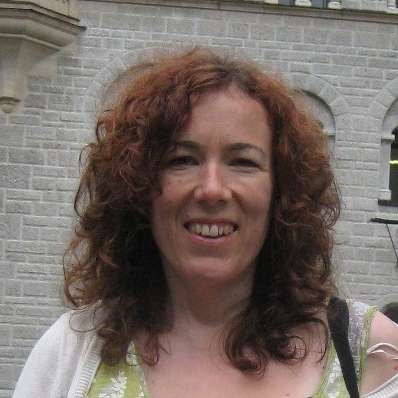For lovers of choral music, a Bach Passion or Handel’s Messiah are as much part of Easter as chocolate eggs, and this year’s musical treat at the Sage Gateshead was Bach’s St John Passion, played by Northern Sinfonia with debut guest conductor Matthew Hall. I’ll admit straight away that this is one of my favourite pieces of music, so my standards were going to be high: happily Northern Sinfonia and their excellent chorus did not disappoint.
Matthew Hall opted for incredibly fast tempi during the more aggressive choruses - Bist Du nicht, Weg Weg, Kreuzige and Lasset uns den nicht zerteilen and the Northern Sinfonia Chorus rose splendidly to the challenge. Every single semi-quaver was bang in place and crystal clear, as was the text. At times I felt breathless just listening to them; it was edge-of-seat stuff, and very exciting to hear. The only movement that could have perhaps slowed down a little was Lasset uns as the dice-rolling semi-quavers that rattle through the voices were lost in the rush.
James Oxley was a delightful Evangelist, engaging the audience with a real sense of story-telling and clearly relishing the ornamental passages of the recitative. The part of Pilate was sung very entertainingly by David Wilson-Jones; he portrayed a man who was grumpy and irritated by being dragged into something that didn’t concern him. When he got to the words Was ist Wahrheit? (What is truth?) he spat them out with a wry sarcasm that drew a ripple of laughter from the audience. He then slipped effortlessly into a completely different persona for the baritone arias, which he sang with a rich warmth. Soprano Gillian Keith was adorably flirtatious during her first aria, Ich folge dir gleichfalls. The only disappointment of the evening was countertenor Robin Blaze who was clearly not on top form and sounded as if he was struggling during his two arias.
One of the biggest questions a conductor has to face when performing the Bach Passions is how to handle the chorales that punctuate the work and serve as a commentary on the action. Matthew Hall decided to treat them almost as mini-choruses, taking them quite quickly and phrasing them right through, following the sense of the words rather than the lines of the chorale. Personally I prefer the chorales to be sung in a more stately, hymn-like way, to distinguish them from the choruses, and remembering that in Bach’s time the audience would have been expected to join in. The choir were beautifully balanced during the chorales, all four parts perfectly clear, allowing us to enjoy Bach’s wonderful harmonies to the full.
The St John Passion is framed by two magnificent choruses, the opening Herr, unser Herrscher and the sublime penultimate movement Ruht Wohl. The opening set the tone for the rest of the performance; it was fast and energetic, loaded with tension, and somehow on the repeat both choir and orchestra managed to ratchet up the excitement another notch. After all the fast tempi during the performance, I was worried that Ruht Wohl would be too quick, but in fact the pace was just right, and Matthew Hall certainly didn’t fall into the opposite trap of over-indulgence. The vicious choruses during the trial scene were not rushed either, and carried a strong sense of menace in their restraint.
The performance began with a brief address from the Very Revd Michael Sadgrove, Dean of Durham Cathedral, who always has interesting things to say on the subject of worship and music. He spoke of Bach as being a master theologian because of the way he conveys his knowledge and understanding of the Biblical texts so well in his music. He explained that the emphasis in St John’s Gospel, and therefore in Bach’s Passion too, is on glory and victory. This was made abundantly clear this evening by both the orchestra and chorus of Northern Sinfonia.


